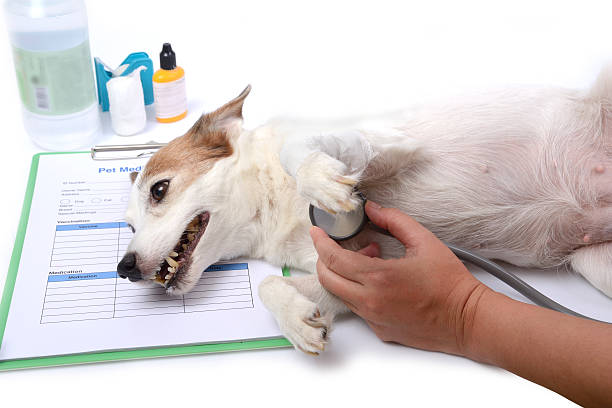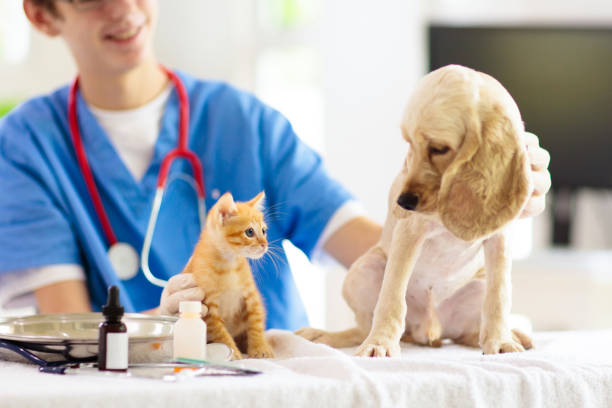As a responsible pet owner, understanding and addressing your furry friend’s fundamental health needs is crucial for their well-being. From nutrition to regular veterinary care, a proactive approach ensures that your pet lives a long, happy, and healthy life. Here’s a comprehensive guide to the basic health needs every pet owner should be aware of.
1. Proper Nutrition
Overview: A balanced diet is essential for maintaining your pet’s health and energy levels. It supports their growth, prevents diseases, and keeps them in optimal condition.
Key Points:
- High-Quality Food: Choose pet food with high-quality ingredients. Look for products where meat is the primary ingredient and avoid those with excessive fillers or artificial additives.
- Portion Control: Follow the feeding guidelines provided on the food packaging or by your vet. Adjust portions based on your pet’s size, age, and activity level.
- Special Dietary Needs: Consult your vet if your pet has specific dietary requirements due to age, health conditions, or allergies.
Impact: Proper nutrition supports overall health, energy, and well-being.
2. Regular Exercise
Overview: Physical activity is vital for your pet’s physical and mental health. Regular exercise helps maintain a healthy weight, boosts mood, and promotes overall well-being.
Key Points:
- Daily Activity: Ensure your pet gets adequate exercise suited to their breed and age. For dogs, this may include walks, playtime, or running; for cats, interactive toys and climbing structures can provide necessary activity.
- Mental Stimulation: Engage your pet’s mind with puzzles, training exercises, and interactive toys to keep them mentally sharp and prevent boredom.
Impact: Regular exercise maintains a healthy weight, reduces behavioral issues, and enhances overall happiness.
3. Routine Veterinary Care
Overview: Regular checkups with a veterinarian are crucial for monitoring your pet’s health and preventing diseases. Routine care helps catch potential issues early and keeps vaccinations up-to-date.
Key Points:
- Annual Checkups: Schedule regular veterinary visits for exams, vaccinations, and preventative care.
- Dental Health: Regular dental checkups and cleanings are important to prevent oral health issues like tooth decay and gum disease.
- Parasite Prevention: Keep up with treatments for parasites such as fleas, ticks, and worms as recommended by your vet.
Impact: Routine veterinary care ensures your pet’s health is monitored and maintained, helping prevent and address potential health issues.
4. Grooming and Hygiene
Overview: Regular grooming helps keep your pet’s coat and skin healthy and can prevent various health issues.
Key Points:
- Brushing: Regular brushing helps remove loose hair, reduce shedding, and prevent matting. The frequency depends on your pet’s coat type.
- Bathing: Bathe your pet as needed, using pet-specific shampoos to avoid skin irritation. Avoid overbathing, which can strip natural oils from their coat.
- Nail Trimming and Ear Cleaning: Trim your pet’s nails regularly to prevent overgrowth and discomfort. Clean their ears as needed to prevent infections.
Impact: Proper grooming keeps your pet comfortable, prevents health issues, and maintains their appearance.
5. Hydration
Overview: Ensuring your pet has access to clean, fresh water is crucial for their health. Adequate hydration supports digestion, circulation, and overall bodily functions.
Key Points:
- Fresh Water: Provide clean water at all times. Change the water daily and clean the bowl regularly to prevent bacteria growth.
- Monitor Intake: Watch for any changes in your pet’s drinking habits, as significant changes can indicate health issues.
Impact: Proper hydration supports bodily functions and overall health.
6. Weight Management
Overview: Maintaining a healthy weight is important to prevent obesity-related health issues. Proper weight management supports overall health and longevity.
Key Points:
- Balanced Diet and Portion Control: Follow feeding guidelines and avoid overfeeding. Monitor your pet’s weight and adjust their diet and exercise routine as needed.
- Regular Exercise: Ensure your pet gets sufficient physical activity to help manage their weight.
Impact: Proper weight management prevents obesity and related health problems.
7. Safe and Comfortable Living Environment
Overview: Providing a safe and comfortable environment is essential for your pet’s physical and emotional well-being.
Key Points:
- Pet-Proofing: Ensure your home is free of hazards such as toxic plants, chemicals, and choking hazards.
- Comfortable Space: Provide a cozy, designated area where your pet can rest and feel secure.
Impact: A safe and comfortable environment supports your pet’s overall happiness and health.
8. Mental and Emotional Well-Being
Overview: Mental stimulation and emotional support are crucial for your pet’s overall happiness and behavior.
Key Points:
- Social Interaction: Spend quality time with your pet to strengthen your bond and provide emotional support.
- Enrichment Activities: Engage your pet in activities that stimulate their mind, such as puzzle toys and interactive games.
Impact: Mental and emotional enrichment enhances your pet’s quality of life and helps prevent behavioral issues.
Conclusion
Understanding and addressing your pet’s basic health needs is fundamental to being a responsible pet owner. By focusing on proper nutrition, regular exercise, routine veterinary care, grooming, hydration, weight management, a safe living environment, and emotional well-being, you can ensure your furry companion thrives and enjoys a long, healthy, and happy life. Regular attention to these core aspects of pet care helps create a loving and supportive environment for your pet’s well-being.



